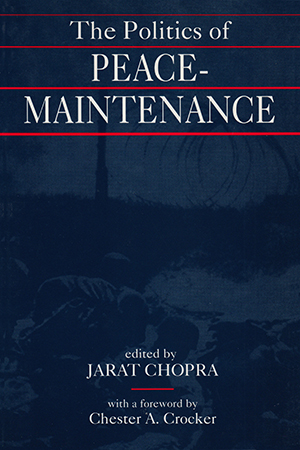
- 1998/148 pages
The Politics of Peace-Maintenance
The results of more than fifty years of peacekeeping operations—ranging from diplomatic efforts to so-called peace enforcement (the use of military force)—have made it clear that a new international political capability is required to adequately manage internal conflicts. That capability, peace- maintenance, is introduced and explored in this seminal work.
Varying in degree of engagement between governorship, control, partnership, and assistance, peace- maintenance is conceived as an interim authority that, in conjunction with local populations, represents the exercise of political authority within nations by the international community as a whole. The authors at once debate the legitimacy and effectiveness of peace-maintenance and clearly explain the dimensions and requirements of successful operations. Theoretical doctrine and practical experience are integrated in chapters on establishing political authority, organizing civil administration, reestablishing law and order, asserting humanitarianism, providing military security, and local acceptance of external authority. The result is both a review of past missions and a dialogue about the current and future politics of peace-maintenance.







